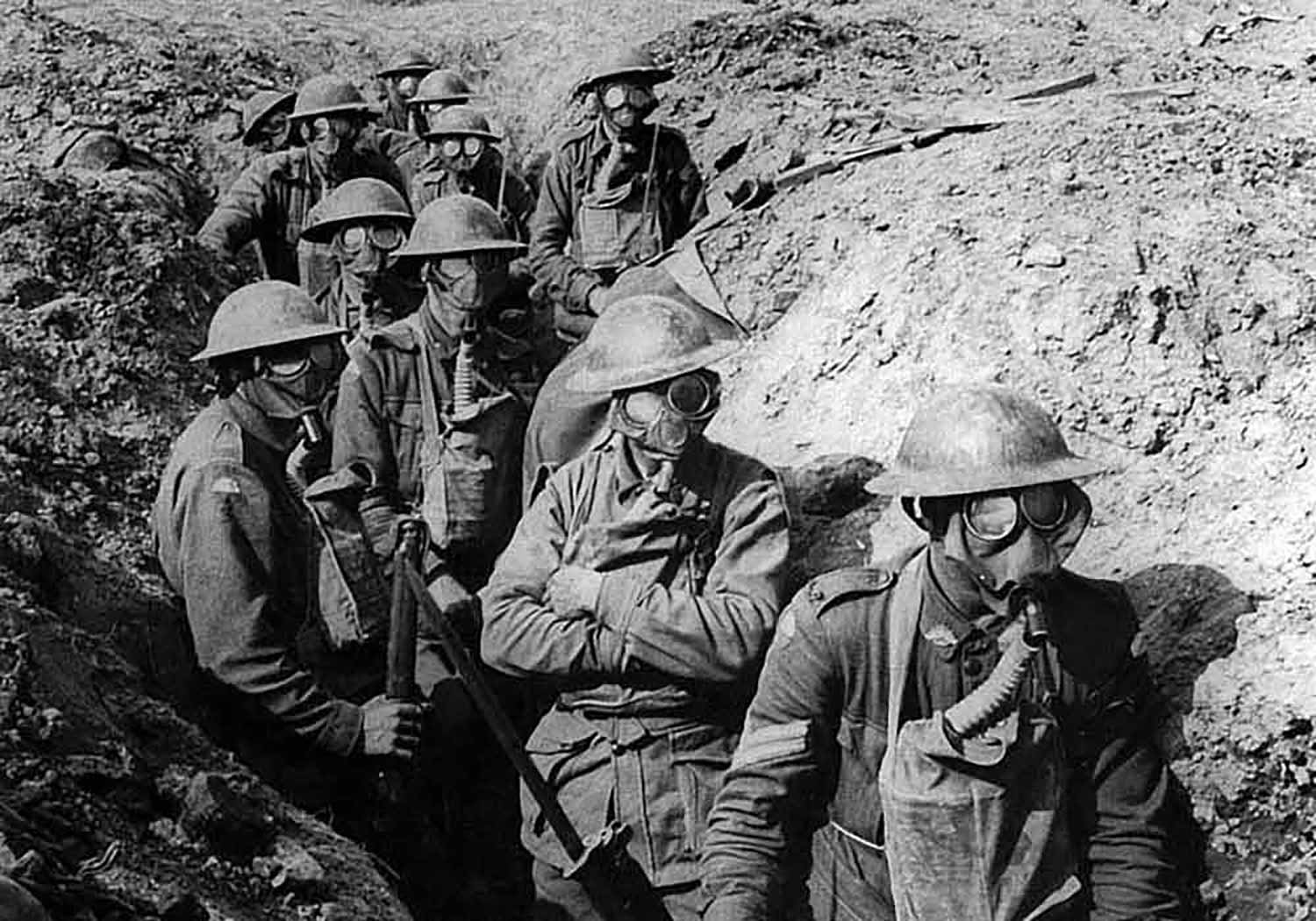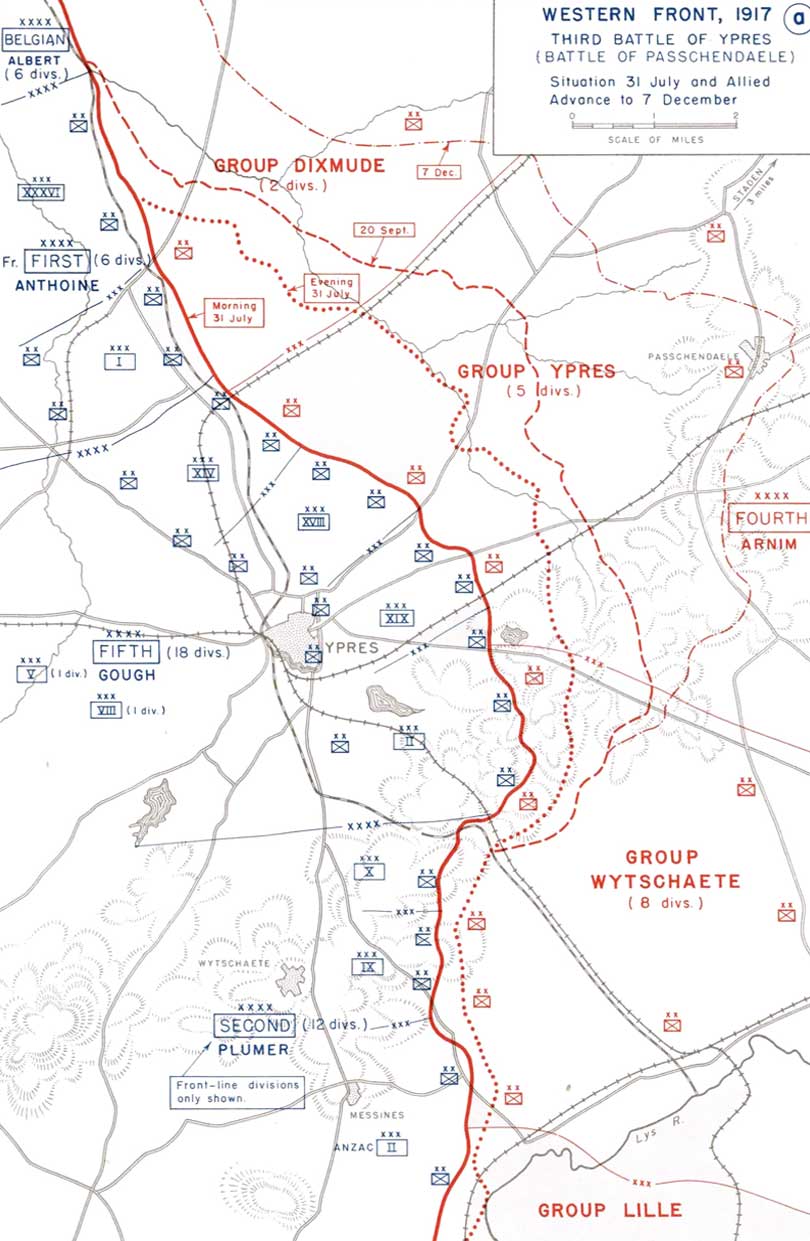Passchendaele
31 July – 10 November 1917
WW1 - Third Battle of Ypres (Battle of Passchendaele)
Following Messines, the next phase of what became the Third Battle of Ypres was to attack from near Ypres on 31st July 1917.
The Facts
- Date: 31 July – 10 November 1917
- Location: Passendale, Belgium
| Countries Involved | |
|---|---|
| British Empire France Belgium |
German Empire |
| Countries Commanders | |
| Douglas Haig Hubert Gough Herbert Plumer François Anthoine Louis Ruquoy |
Erich Ludendorff Crown Prince Rupprecht of Bavaria Friedrich Sixt von Armin |
| Number of Casualties | |
| Between 200,00-450,000 | Between 217,000-410,000 |
This was the costliest day of the war in Flanders when over 6,000 British and Commonwealth troops were killed. And while on most parts of the front there was success, it began to rain that evening and quickly turned into the wettest summer in living memory. This combined with the terrific bombardments of millions of shells, the smashed landscape turned into a muddy moonscape, where everything from men, mules, guns and even tanks disappeared into it.
Arguably it was the worst battlefield on which British soldiers fought, in terms of the physical conditions. With fighting across the Steenbeek River, at Frezenberg and Broodseinde, and places like Polygon Wood, gradually the Germans were pushed back until the Canadians took the village of Passchendaele in November 1917 bringing the battle to an end. British casualties alone numbered over 300,000.

Australian infantry - Ypres


